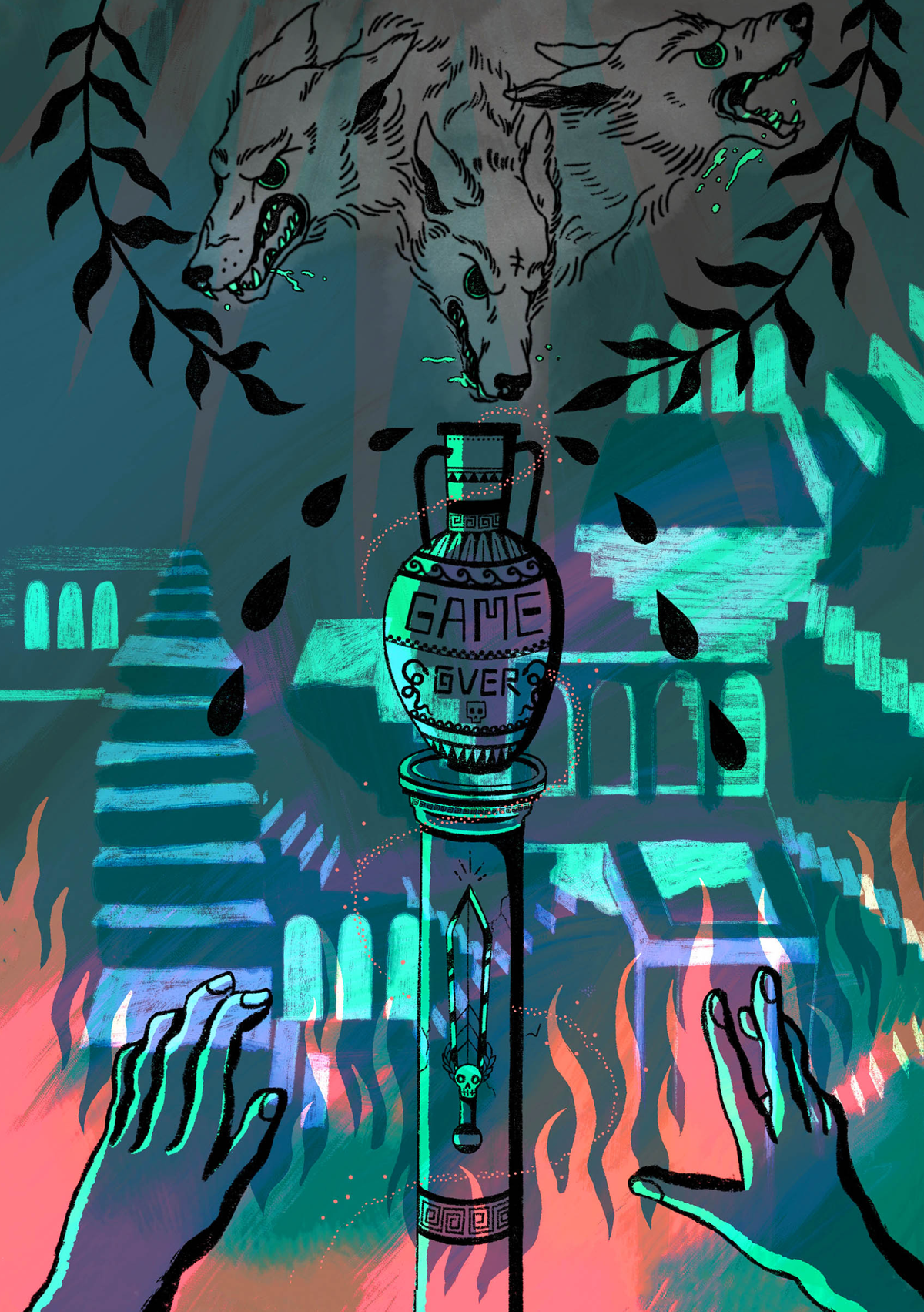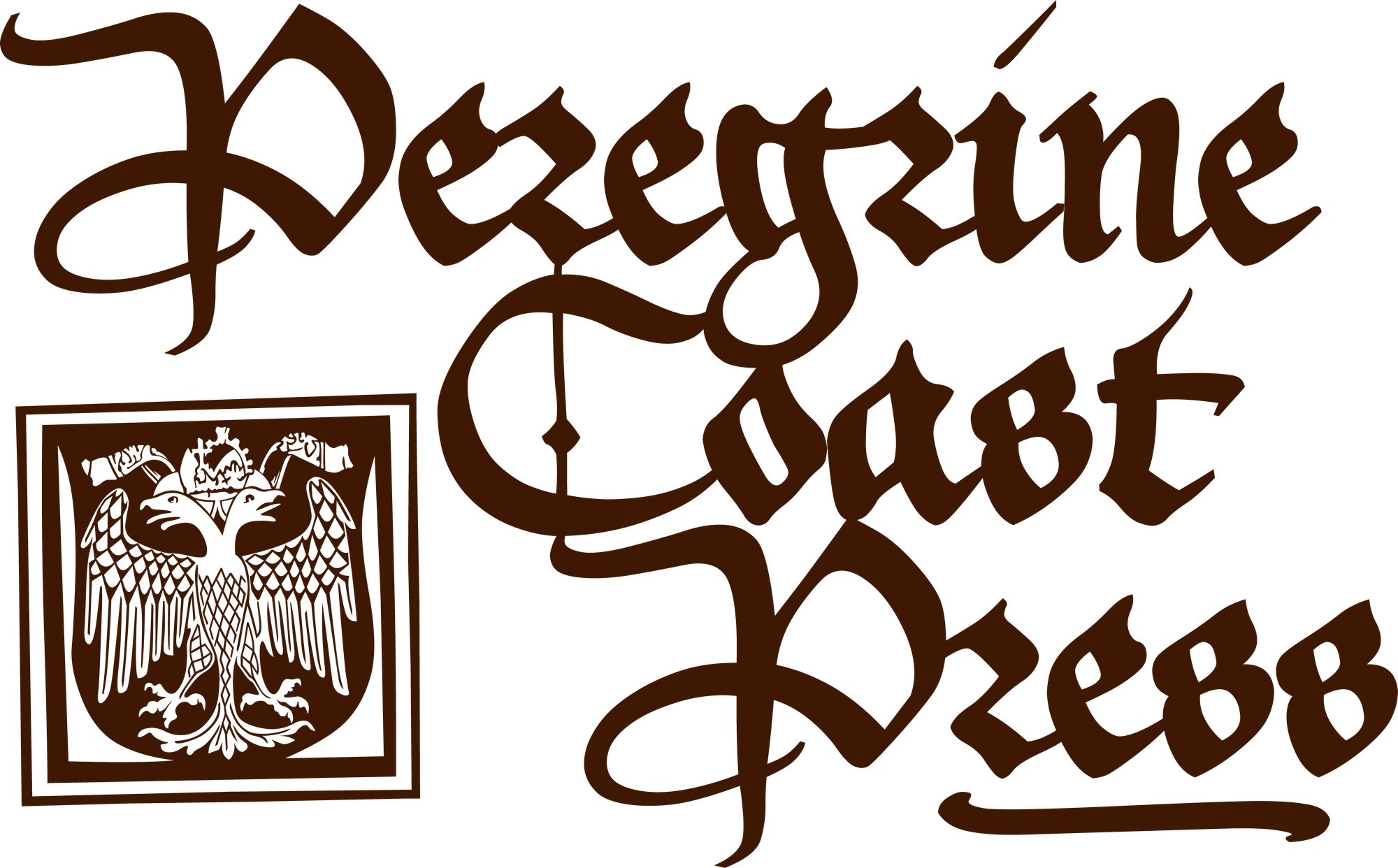Playing Hades or—what it's like to sit with inadequacy
I knew I had a problem when I left my house to buy a controller.

I knew I had a problem when I left my house to buy a controller. After a couple of eight hour days, my hands were cramping from the joy-con controller contraption that came with my Nintendo Switch, which I got for Christmas only a week earlier. I called my brother—a life-long gamer—who I knew could help me with my problem. He answered the phone, incredulous, as he expected me to say I was playing Animal Crossing or Breath of the Wild, both of which were more my speed. No, I decided to play Supergiant Games’s Hades, a rogue-like featuring Greek mythology.
“No,” I said. “On both counts.”
I had heard about Hades on the podcast Same Day Shipping a month or so earlier when one of the hosts talked about the intense chemistry and budding relationship between two of the major characters. Then, I watched someone on Twitch play the game for all of 10 minutes. Intrigued by the artwork and Greek mythology storyline, I bought it as soon as I got my Switch. I didn’t know what kind of game it was. Based on my limited information, I anticipated a dating/life simulation with some fighting mixed in here or there. I had played Legend of Zelda: A Link Between Worlds a few years earlier and did okay, despite my lacking combat skills. I can muddle my way through Super Smash Bros—never a winner, but definitely a contender. I thought it would be fine, that Hades would be easy for me to learn.
When Zagreus—the playable character—dies somewhere in the realm of Hades, he finds himself walking out of a pool of blood into the House of Hades, where his father (Hades) barely acknowledges his son’s fleeting attempts to escape. Zagreus also finds a host of Chthonic gods who hope to aid and assist him on his journey to the surface. Before each escape attempt, Zagreus chooses a weapon and heads out, fighting his way through chambers, hoping to reach the outside world. When he dies and finds himself back home, he can permanently upgrade his weapons and make himself stronger. The problem was, even when I died and came back, I barely grew stronger. My first two days of playing were full of near constant death and respawns due to my ineptitude at figuring out what the hell I was supposed to be doing or how I was supposed to get out of Hades.
Despite my continuous failures, I kept playing. I found myself enraptured by the artwork and intrigued by the ever-developing storyline. Generally, when I realized I was terrible at something, I’d just quit. I hate being bad at things, and often find it a waste of time to keep trying. I’ve never seen myself as a quitter. In fact, I’m rather persistent—when I know that persistence will allow me to get what I’m after. Hades and most other games, though, lack any external reward or praise. The only thing I’m getting if I do well is my own enjoyment, which sometimes isn’t enough for me. My lifelong tenacity has measured success in awards, publications, and awe. Even the video games I played prior to Hades were chosen for very specific reasons—I knew I could succeed, or rather, there was no way to be bad at the game. I don’t win or lose at The Sims. I just play. Hades kickstarted in me a need to succeed regardless of external factors. My only motivations to keep playing were that I spent $30 of my limited game money on Hades and I really wanted Zagreus to romance Thanatos.
When I started playing Hades, I was at a personal low. Perceived failures after failures compounded on each other until I believed everything I had worked for my entire life suddenly didn’t matter. Even though I completed a Master’s degree with flying colors and showed promise in becoming a full-time climate communicator, I was unable to find a job upon graduating at the beginning of the pandemic. In need of money and health insurance (thanks America!), I turned to teaching seventh grade reading at a public school in my area. I hated it, despite receiving praise from administration and fellow educators. My apartment was my least favorite place on the planet, outfitted with a revolving cast of problems that the property managers could not or would not fix. My grandmother—the person in my life who I was closest to—had passed away just five days before Christmas. COVID cases were rising in the Southern state where I lived. I had no reprieve.
Alone in a shitty apartment after the holidays with a week left before I had to be back in the classroom, I set up my Switch and started the game. Normally when I feel this down, I turn to re-reading old favorites like the Percy Jackson series or marathoning trashy movies to keep my mind off of the creeping depression in the back of my mind. At the time, those two activities were not active enough. They didn’t require enough of my attention. Hades required everything I had. So, I learned to be okay with being bad. I’d read online about how other players beat the final boss for the first time on their 30th attempt. On my 30th attempt, I was lucky to get past Megaera, the boss of Tartarus, with whom Zagreus seemed to have a complicated relationship. I forwent my button-mashing haze for careful attempts to understand what the buttons did – and how. Back at the House of Hades, I built up my relationships with the other characters, strengthened Zagreus using the magical mirror in his bedroom, and started some redecorating. I realized that I didn’t have to be good at the game. It didn’t matter—not too much, anyway, because I was still progressing and getting better. I enjoyed the things that first intrigued me about the game—the storytelling that featured a fresh take on Greek myth and the life simulation aspects. The fighting was still a major part, though, because for anything back home to progress, I had to clear chambers and make it to the surface. I had been making progress, getting further and further, making it to the surface only to get absolutely slaughtered by the final boss. Attempt after attempt I tried to get my first clear, but I had reached a plateau.
In my overwhelming desire to win, I got stuck in a bad habit. I attempted run after run using the same weapon, aiming for the exact same build. I had gotten comfortable, spending 60+ runs with the spear, because I had only ever gotten far with the spear. I didn’t want to fail by trying a new weapon and then losing in Tartarus. I had worked so hard to progress past Tartarus, Asphodel, and Elysium, that I didn’t want to risk ruining a good thing. I didn’t have a good thing, though. My reliance on the spear was fear, that same fear of losing that almost kept me from the game. I was afraid if I didn’t use the spear, I would die early on. After one of my deaths, I made a decision. I would use a different weapon. I chose the twin fists and completed my first successful run. I made it out, past the final boss, into the world above. At that point, I had made over 90 attempts at escape. It had been five months of playing this game, with over 125 hours logged. I felt so accomplished that afternoon when I finally saw the victory screen.
As I finally sat with victory, I realized how far I had come. Hades gave me something to focus on and work toward when I didn’t feel like focusing on or working toward anything. It was this constant chatter in the background of my life that reinvigorated my love of stories and helped me through a really intense grieving process. It doesn’t matter to me that I’m still not great at the game. I’m constantly improving and finding joy in the long, slow process of getting better.
